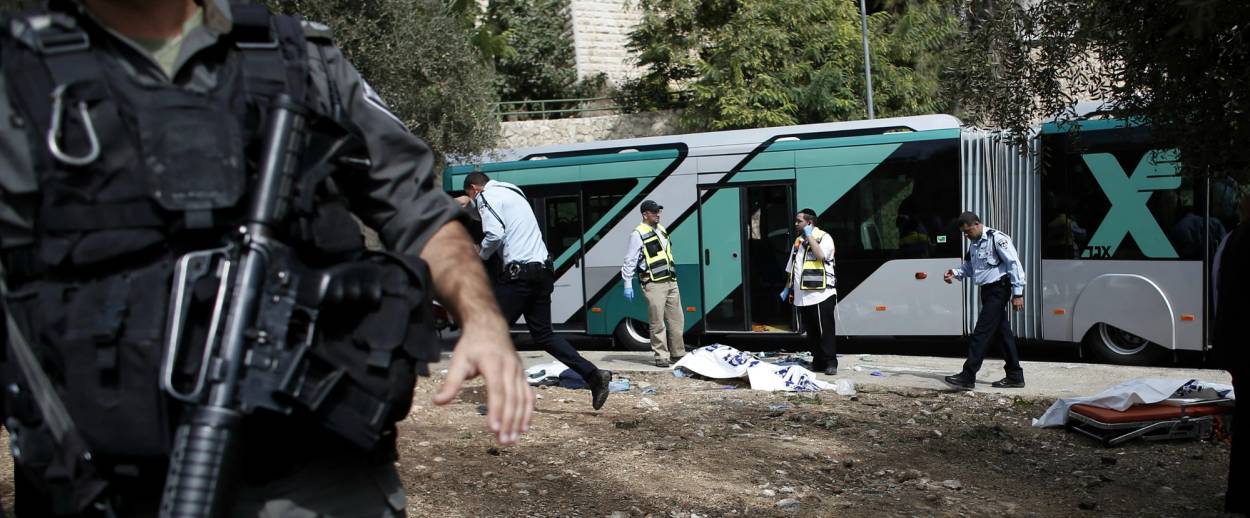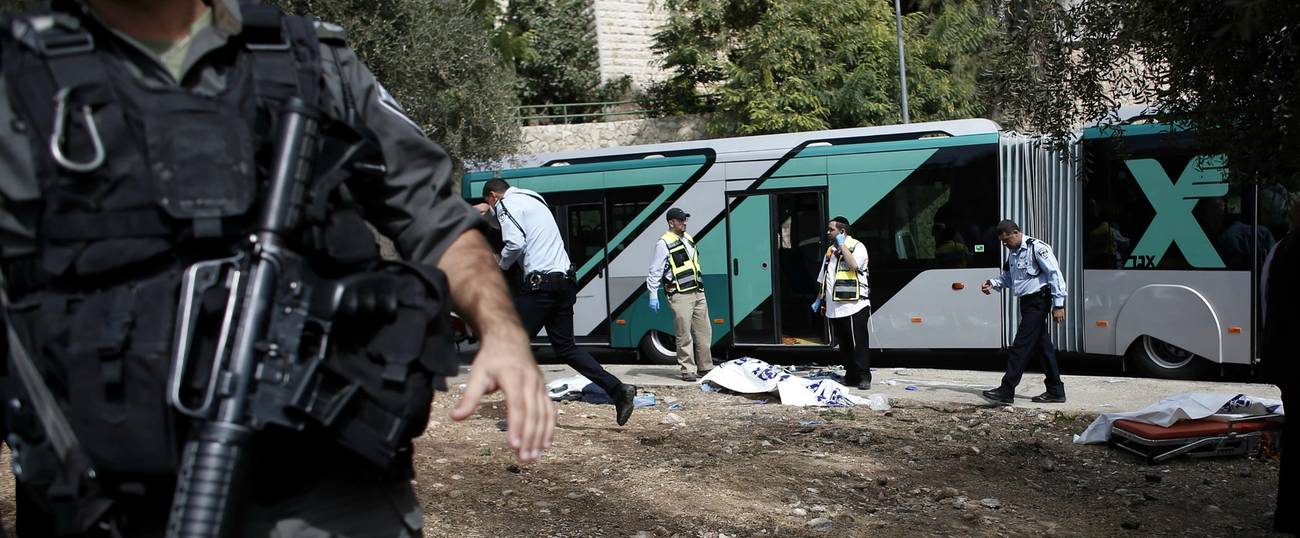Last October, two young Palestinians boarded the Number 78 bus in Jerusalem’s Armon Hanatziv neighborhood, drew their semi-automatic weapons, and started shooting at the innocent passengers. The bus driver slammed the breaks and opened the doors, but the terrorists forced them shut; then, they ran up and down the bus, shooting and stabbing the terrified civilians, many of them elderly. Three Israelis died in the attack, including Richard Lakin, an American-born educator with a lifelong commitment to Arab-Israeli coexistence.
One of those terrorists Baha Alian, a young PLO thug, was killed by Israeli policemen arriving at the scene shortly after the attack began. On Thursday, three Arab Israeli members of Knesset—Basel Ghattas, Jamal Zahalka, and Haneen Zoabi—met with Alian’s father to hear and support his demand that Israel return the terrorist’s body to his family.
The meeting began with a moment of silence for what the members of Knesset described on their official Facebook page as shaheeds (شهيد), or martyrs. After a confab that Alian’s father described as “warm and productive,” the MKs promised to do whatever they could to help, denounced Israel, and offered their salute to the Alian family’s struggle and the courage of all families of all other martyrs.
The three politicians all belong to the Joint List party, Israel’s third largest. The other week, David Remnick profiled the party’s leader, Ayman Odeh, in The New Yorker, portraying the young lawmaker as a local Martin Luther King, Jr. who offers hope where others see only fear, loathing, and bloodshed. If Odeh is indeed that man, he should act swiftly and demand the immediate resignation of his three colleagues, who, even by the most tolerant and forgiving of standards, have now placed themselves squarely in the service of Israel’s murderous enemies. If he fails to do so, the Israeli government ought to intervene.
Just as we wouldn’t tolerate an American senator, say, visiting the families and honoring the memories of Syed Rizwan Farook and Tashfeen Malik, the terrorists who had killed 14 of their neighbors and coworkers in the shooting attack in San Bernardino, California, last December, Israel should not put up with its legislators crossing such a flagrant red line. And Israeli Arabs who truly want hope should vote in representatives who work towards justice and peace rather than the stabbing and shooting of elderly Jews midday on a city bus.

